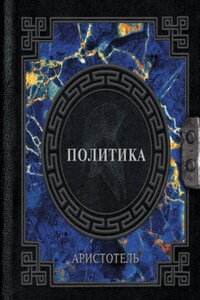IN the Middle Ages the old world had passed, and the vision of a new world came near to the eager and passionate hearts of many peoples. Lincoln and Wells, Amiens and Chartres, Florence and Assisi tell us of the glory of that vision; and bear witness of its flight: for with Gilbert, Galileo, Harvey and Newton the Middle Ages themselves became a phantom, and again the spirit of a new world appeared. Thus in the phases of time the world dies and is born again; fulfilling greater destinies. But the new are born in the cold bed of the elder worlds, and the young life is chilled, or a lustier offspring turns unnaturally to curse the dead; so in their decrepitude lay the Middle Ages upon modern life; and the Middle Ages were accursed, until certain pious men sought to reanimate their vestments and their formulas, and to set the hands back on the dial of the centuries; as manyminded man seeks wistfully to reanimate the simple wonders and beliefs of his childhood. Their ministry was no more than pious; the method of modern history wins the fruits of the past while casting away the shadow of its withered branches. This comparative method, first applied to the art and romance of the Middle Ages, so that every dilettante may now discourse to us of their evolution, has been applied also to the thought of the period; but its results, laid up in the closets of a few scholars, are as yet unfamiliar. It may then become one, who in no sense a scholar has strayed into these secret places, to try to distribute some lessons of the medieval thought which, to many of us, seems as sere and outworn as did the relics of Gothic shrines to our great-grandfathers. For, as in those medieval generations which lay nearest us the furnace had cooled, impatiently we had thrown metal and dross aside, and let our contempt for the dryness and pedantry of its latter days prevent our vision of the earlier time when the passion for knowledge bore up the world, and sought even to contain it. That dogma is not eternal is manifest to every wanderer in the streets of Toledo, yet the historian may well recall us to the study of a time when, by mystical or intellectual inspirations, men strove eagerly to know the meaning of life, its origins, and its issues; and may lead us to the discovery of the seeds and wells of its fertility. The Greeks prophesied that before man can determine his place and service in this world he must form some theory of the world as a whole; the ages of faith prophesied that great deeds must be born of great faith and of great conceptions.
To those who live only in the past, or only in the present, there seems in the discriminations of the comparative historian to be a certain cold-bloodedness. Are not the ears of this critic, so aloof from the murmuring of creed and controversy, are they not deaf to the voices of the spirit which he would interpret to us? A distinguished bishop who was among my hearers, with the fervour and gentle humour so well known in him, rallied me not for celebrating science but for putting religion to rout. Yet in our own day surely the argument is changed, not in form only but in very nature; so changed by the conceptions of evolution, which have entered the mind of churchman and layman alike, that not a few speculative beliefs are changing sides without the knowledge of the disputants; and he who thinks himself a defender of the faith may have joined the revolt. But if we no longer carry the colours of the troops of the past we shall collect our lessons from its strategies; and for one of these lessons a prelate of the King will give thanks with me, that his supremacy has palsied the arm of the inquisitor to strengthen that of the apostle.
An unsystematic reader of a subject finds it out of his power to make due acknowledgment of the help and advantage derived from expert authors. Much of the matter had seeded itself insensibly in his brain in the course of general reading and conversation; much of it again had been obtained more carefully from sources now forgotten. To the following authors I know I am profoundly indebted, as I am to many others to whose names and works I can now give no reference:
Hauréau, La Philosophie Scolastique, Ed. 1872;
Jowett, Dialogues of Plato (vol. III. p. 523);
Jourdain (Amable), Recherches critiques, Paris 1848;
Jourdain (Charles), Excursions historiques, Paris 1888 (and the Philosophie de St Thomas of the same author);
Ampère, Histoire litt. de la France avant le XIIme siècle;
Brucker’s Historia Critica Philosophiæ (English Ed., 1791);
Renan, Averroès, Paris 1866; the Philosophie périp. apud Syros; and the Peuples Sémitiques dans l’histoire de la civilisation, of the same author;
Roger Bacon, Westminster Review, 1864, two Articles (by Thomas Marshall, M.A. Oxon.);
Schmidt, Essai sur les Mystiques du XIVme siècle;
Benn, A. W., The Greek Philosophers, London 1882 (and many helpful essays in periodical literature);
Zeller, Die Philosophie der Griechen, 1881;
Krische, A. B., Theologische Lehre d. Griechischen Denker, Göttingen 1840;








